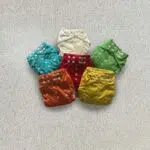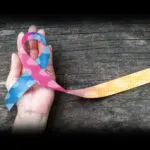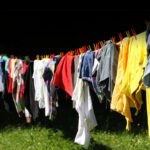Cloth Nappy Week takes place from April 19 to April 25 annually. The week aims to inculcate good habits in new parents where they can do their bit for the environment by using a cloth or reusable nappy. Before there were disposable nappies, children were made to wear cloth nappies that were later washed with soap and water for many more reuses. Although tiresome to clean, these nappies were good for the baby’s skin and did not add to non-biodegradable waste in the environment. Cloth Nappy Week reminds us that the generations before us had mindful habits, and it’d do us good to adopt a few of them.
History of Cloth Nappy Week
Cloth Nappy Week, or Reusable Nappy Week, is an annual week of celebration observed every year from April 19 to April 25 to highlight the pros of using reusable nappies. We all turn to single-nappies for our babies; however, this practice has grave consequences for the environment. In Europe, single-use nappies generate around 6,731,000 tonnes of waste every year. Since the composition of these nappies is usually non-biodegradable, along with the presence of organic matter after use, recycling single-use nappies are extremely complex and expensive.
Therefore, in most countries around the world, single-use nappies end up in landfills or burnt. This leads to wastage of resources and pollution of land, air, and water — so much wastage for a few hours of comfort! But thankfully, with the efforts of many environmentally conscious people, we now have eco-friendly, non-toxic, and plastic-free nappies in the markets.
One such reusable nappy is cloth nappies. These nappies have proven to be environmentally friendly, cost-efficient, and gentle on the baby’s skin. While some components in single-use nappies can cause irritations to the baby, there is emerging evidence that cloth nappies are safer for babies! Cloth Nappy Week aims to raise awareness, urges action from producers and suppliers, and enlightens parents on the many benefits of cloth nappies. This is the week to revisit how things used to be and take cues from our grandparents who would use cloth nappies for their babies. Ensure a greener future for your babies by pledging to use reusable nappies in Cloth Nappy Week.
Cloth Nappy Week timeline
Maria Allen produces the first mass-made cloth diapers in the U.S.
Robinsons of Chesterfield makes the first disposable diapers.
Major companies monopolize the disposable diapers market.
They become the blueprint for the disposable diapers used today.
Cloth Nappy Week FAQs
How long does a cloth nappy last?
Once your child sleeps through the night, a highly absorbent cloth nappy will easily last 12 hours.
How many cloth nappies will a baby need a day?
Newborns to around three months can use between 10 to 12 nappies a day.
How often do you change a cloth nappy?
Most cloth nappies need changing every two to four hours, and they should be changed as soon as the baby excretes in them.
Cloth Nappy Week Activities
Switch to cloth nappies
If you have a baby, consider switching to cloth nappies and not using disposable diapers unless absolutely essential. You can begin by using only cloth diapers during Cloth Nappy Week.
Gift cloth nappies
Cloth nappies make for great presents to new parents. On Cloth Nappy Week, gift new parents cloth or reusable nappies, which will raise awareness while offering readily available alternatives to the parents.
Give shoutouts to cloth nappy brands
Celebrate Cloth Nappy Week by giving shoutouts to cloth nappy brands. You can post on your social media, direct parents to these brands, and even talk about how you liked the products of these brands.
5 Facts About Diapers That Will Blow Your Mind
They are choking landfills
Diapers rank number three in occupying landfills.
They take very long to decompose
Disposable diapers may take up to 500 years to decompose.
Babies need a lot of diapers
A baby uses up to eight diapers a day.
They are expensive
Parents spend up to $3,000 every year on diapers.
Diapers delay potty training.
It may delay potty training by up to six months.
Why We Love Cloth Nappy Week
It promotes eco-friendly practices
By switching to cloth nappies from disposable diapers, you adopt eco-friendly practices that ensure a green future for your children. Cloth Nappy Week promotes this good practice.
It’s good for babies
If disposable diapers irritate your baby, Cloth Nappy Week has a solution for you. Switching to cloth nappies can be comfortable for babies and gentler on their skin, and this simple switch can significantly make your baby more comfortable.
It’s a way to save money
Raising babies is expensive. Cloth Nappy Week shows parents how to cut costs when available. Switching to reusable nappies can save thousands of dollars every year!
Cloth Nappy Week dates
| Year | Date | Day |
|---|---|---|
| 2026 | April 19–25 | Sunday–Saturday |
| 2027 | April 19–25 | Monday–Sunday |
| 2028 | April 19–25 | Wednesday–Tuesday |
| 2029 | April 19–25 | Thursday–Wednesday |
| 2030 | April 19–25 | Friday–Thursday |
































